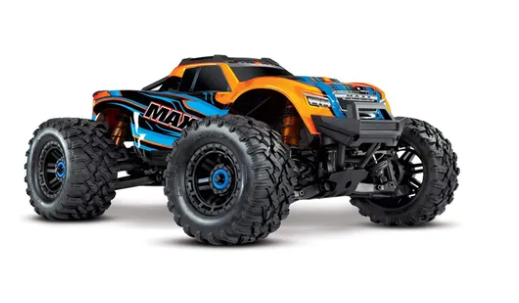Remote-control cars, or RCs, have revolutionized the world of racing and hobbies. Nowadays, an RC hobby is no longer restricted to cheap store-bought trinkets. Their improved acceleration and qualities have gained traction in the market, resulting in a stark increase in their price point. RC vehicles are no longer cheap and require a fair amount of investment. Thus, if you’re looking to get your hands on an RC car, here are five things you should consider before purchasing.
How Well They Accelerate
With time and advancements, RC cars are fast and can reach record-breaking speeds. While most of this is accounted for by liquid fuels, battery and tech have significantly improved their overall performance. Thus, you should be able to find RC car models that will easily hit 50 km/hr, making them highly suitable if you’re looking for a fun-loving RC hobby. Not only will they quench your thirst for power, but they are also incredibly adaptable. They work effectively on almost all terrain, from dirt pits and paved roads to even grassy fields.
Check The Car’s Scale
The size of the RC car refers to its fraction relative to a full-sized car or model. For instance, if you’re looking at a car with a 1/10 scale, it means that the car is 1/10th of the dimensions of the original car model it’s replicating. You can find one with scales ranging from 1/16 to larger ones going to 1/5. It is important to note that as the scales increase, the price also increases, making it quite expensive for those with a 1/5 scale. 1/10 is the most common scale in the market. It is best advised to stick to this industry-standard scale since it’ll give you greater access to spare parts and other accessories to supplement your car.
Look At The Batteries Used In Electric RC Cars
Nickel-metal hydride (NiMh) batteries are the most common and cheapest batteries found in most RC vehicles. Nowadays, you’ll see a rapidly accelerating trend of using lithium polymer batteries, or LiPo. These are relatively pricey but highly lightweight and hold extraordinary power, making them apt for larger RC cars. Invest in suitable batteries to ensure your electric vehicle is powered well. Doing this will allow you to tap into its full potential. For instance, opt for a battery with a higher energy rating and high voltage that is still compatible with your RC car. It makes the engine spin faster, allowing you to drive the car more efficiently, and lasts longer, making it cost-effective in the long run.
Make A Choice: Nitro Or Electric
Typically, batteries (or electric power) and nitro are the two types of propulsion found in RC tech. Nitro cars utilize a series of internal combustion engines. Depending on the engine specifications, they require a special fuel consisting of nitromethane, methanol, and oil. They are noisier, require regular maintenance and servicing, and are prohibited in some tracks. This makes electric RCs preferable. However, since batteries for an electric car can be pretty pricey, they are still a long shot for many users. But, given the opportunity and budget, many opt for an electric one since it is easily rechargeable, better for the environment, and cost-effective.
Access To Spare parts
Even if you’ve got a ready-to-run RC car, you will need spare parts to assemble, modify/upgrade or repair them. Some vehicles aren’t pre-assembled, so you’ll need to work hard before reaping the benefits. So, make sure that all spare parts are readily available.
Final Words
With advancements in the right direction, an RC can effectively exceed all your expectations and be a good investment. So, if you’re looking for an RC vehicle to supplement your RC hobby, check for these five pointers before investing!































